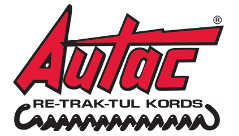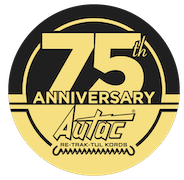When selecting an extension cord for a power washer, it’s crucial to consider several factors to ensure safety, efficiency, and optimal performance. In this guide, we delve into the key considerations, technical specifications, and safety tips to help you make an informed decision.
Understanding Power Requirements
Power washers vary in their power consumption, typically ranging from 1500 to 3000 watts for residential models, and even higher for commercial ones. Before choosing an extension cord, check the power requirements specified by your power washer, usually found on a label or in the owner’s manual.
Types of Extension Cords
Heavy-Duty Extension Cords
For power washers, heavy-duty extension cords are recommended due to their robust build and ability to handle high power loads without overheating or voltage drop. Look for cords labeled as “suitable for outdoor use” and ensure they are rated for the wattage of your power washer.
Gauge and Length
The gauge of an extension cord determines its capacity to carry electrical current over a distance. Lower gauge numbers indicate thicker wires and higher capacity. For power washers, a lower gauge (e.g., 12 or 10 gauge) is preferable to minimize voltage drop and ensure efficient power delivery, especially over longer distances.
Length Considerations
Avoid using excessively long extension cords as they can lead to power loss. Choose the shortest length that allows you to reach your cleaning area comfortably. This reduces energy loss and minimizes potential hazards.
Safety Considerations
Outdoor Use and Water Resistance
Since power washers are often used outdoors in wet conditions, ensure the extension cord is rated for outdoor use and has adequate water resistance. Look for cords with a robust jacket and weather-resistant connectors to prevent electrical hazards.
Overloading and Circuit Capacity
Never overload the extension cord beyond its rated capacity, as this can lead to overheating, melting, or even fire hazards. Check the amp rating of both the power washer and the extension cord to ensure they are compatible with the circuit you intend to use.
Grounding
Ensure both the power washer and the extension cord are properly grounded to prevent electric shocks. Use three-pronged extension cords and connect them to grounded outlets.
Practical Tips for Choosing and Using Extension Cords
Check Compatibility
Verify that the extension cord matches the plug type and voltage requirements of your power washer. Mismatched cords can lead to equipment damage and safety risks.
Inspect Regularly
Periodically inspect the extension cord for signs of wear, damage, or fraying. Replace any damaged cords immediately to prevent accidents.
Storage and Handling
Store extension cords properly in a dry, protected area when not in use. Avoid tangling or knotting cords, as this can weaken them over time.
Factors to Consider
Length and Gauge
The length of the extended extension cord directly impacts its performance. Longer cords can experience voltage drops, reducing the efficiency of power delivery to connected devices. Choose the shortest cord length that meets your operational needs to minimize energy loss and ensure consistent performance.
Voltage Rating and Amp Capacity
Ensure the extended extension cord matches the voltage and ampere requirements of your devices. Exceeding the cord’s ampere rating can lead to overheating, damage to equipment, or even fire hazards. Always check the manufacturer’s specifications for both the cord and your devices to prevent potential risks.
Safety Features
Prioritize safety when selecting an extended extension cord. Look for cords with grounded plugs and outlets (three-pronged) to reduce the risk of electrical shocks. Integrated circuit breakers or surge protectors offer additional protection against power surges and overloads, safeguarding your equipment and premises.
Practical Tips for Use
Regular Inspection and Maintenance
Inspect your extended extension cord regularly for signs of wear, damage, or fraying. Replace damaged cords immediately to prevent safety hazards. Store cords indoors when not in use and avoid sharp bends or kinks that could weaken the insulation over time.
Proper Handling and Storage
Handle your extended extension cord with care to prolong its lifespan. Avoid pulling on the cord to disconnect it from outlets and use cord reels or organizers to prevent tangling. Proper storage in a cool, dry place protects the cord from environmental elements and extends its usability.
FAQs about Extension Cords for Your Power Washer
1. What type of extension cord should I use for my power washer?
For a power washer, it’s recommended to use a heavy-duty extension cord that is rated for outdoor use. Look for cords with a gauge size appropriate for your power washer’s wattage to ensure efficient power delivery without overheating.
2. How do I determine the right length of extension cord for my power washer?
Choose the shortest extension cord that allows you to reach your cleaning area comfortably. Longer cords can lead to voltage drops, affecting the power output of your power washer. Avoid using excessively long cords to maintain optimal performance.
3. Can I use any extension cord with my power washer?
No, not all extension cords are suitable for power washers. Ensure the extension cord you choose matches the voltage and amperage requirements of your power washer. Using an incompatible cord can damage your equipment and pose safety hazards.
4. What gauge extension cord should I use for my power washer?
For power washers, it’s generally recommended to use a lower gauge extension cord, such as 12 or 10 gauge. Lower gauge numbers indicate thicker wires, which can handle higher power loads and minimize voltage drops over longer distances.
5. Are there any safety tips I should follow when using an extension cord with my power washer?
Yes, always inspect the extension cord for any signs of damage or wear before each use. Avoid overloading the cord beyond its rated capacity, as this can lead to overheating and potential fire hazards. Ensure both the power washer and the extension cord are properly grounded to prevent electric shocks.
6. Can I leave my extension cord outdoors when not in use?
It’s best to store your extension cord indoors in a dry, protected area when not in use. Exposure to outdoor elements like rain or sunlight can degrade the cord’s insulation and lead to safety hazards over time.
7. How often should I replace my extension cord?
Replace your extension cord if you notice any cuts, nicks, or exposed wires. Regularly inspect the cord for signs of wear, especially near the plugs and connectors. Proper maintenance and prompt replacement ensure safe and reliable operation of your power washer.
8. Can I use an extension cord with multiple outlets for my power washer?
Using extension cords with multiple outlets (power strips) for your power washer is not recommended, as they may not be rated for the high current draw of power washers. Stick to using single-outlet extension cords that match your equipment’s power requirements.
Conclusion!!
Choosing the right extension cord for your power washer is essential for safety, efficiency, and maximizing the lifespan of your equipment. By considering factors such as gauge, length, safety ratings, and compatibility with your power washer’s specifications, you can ensure reliable performance and safe operation during your cleaning tasks.



Recent Comments